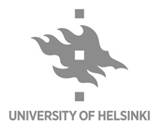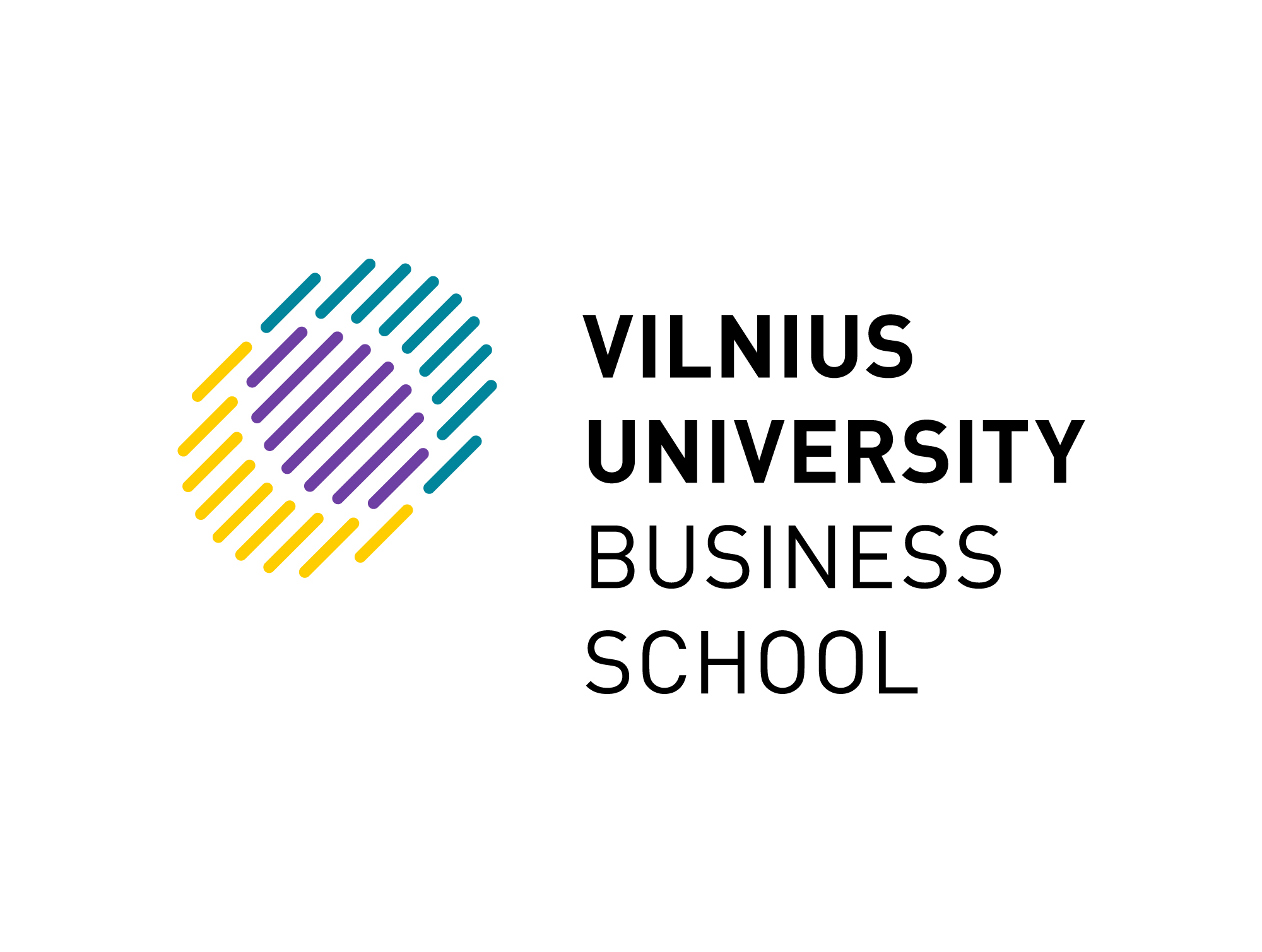University of Helsinki, Finland
Consumer Society Research Centre, a unit within the Faculty of Social Sciences
Consumer Society Research Centre (CSRC) produces and disseminates research that enhances the well-being of consumers and active role of consumers, improves cooperation between consumers and business, supports user-oriented innovation, promotes sustainable development and improves national competitiveness. CSRC has a staff of 30 with backgrounds in consumer studies, economics and sociology. CSRC has an extensive track record in policy-relevant research for national, European and international bodies. The unit was founded January the 1st 2015 and continues the tradition of The National Consumer Research Centre (NCRC), which was a non-profit state institute for consumer research under the Ministry of Employment and the Economy in Finland. The mission of the CSRC is to contunue to investigate, anticipate and identify changes and risk factors within society and to communicate consumer research knowledge. Particular research specialties include sustainable consumption and innovations and participatory methods of consumer research (focus groups, user involvement in innovation, constructive and participatory technology assessment).
The University of Helsinki is the flagship university in Finland and one of the leading multidisciplinary research universities in the world. The high-quality research carried out by the university creates new knowledge for educating diverse specialists in various fields, and for utilisation in social decision-making and the business sector. Higher Education Governance and Management Studies (HEGOM) is a research network at the University of Helsinki. HEGOM’s scholarly outlook is international, covering research and teaching targeted both at students and professional administrators in universities. HEGOM’s research arises from the interaction between basic and applied research and development research about universities. With its expertise in the theory of administration, HEGOM is able to contribute to the multi-disciplinary co-operation in the field of higher education. HEGOM’s specific areas of expertise include higher education policy, university organisation, the changing academic profession, academic and administrative management, university quality assurance systems, research management and the utilisation of research results in decision-making and university management. The reform of universities and higher education is an essential part of these areas of expertise. In the field of higher education policies, HEGOM’s research focus is on higher education decisionmaking, administration and funding. Research topics include the development of higher education organisations and indicators concerning the functioning of universities.
In PE2020 UH is the coordinator of the research project and leads WP5 and WP6 due to its expertise in science policy governance and management and its close contacts with the Academy of Finland and the Research and Innovation Council.
Vilnius University Business School, Lithuania
Vilnius University Business School (VUBS) is a partner in PE2020 since 2016. Previously, the organisation was called International Business School of Vilnius University (VU IBS) until VU IBS was joined with Vilnius University. VU IBS was established in 1989 by initiative of United Nations Development Program together with Vilnius University in order to bring business management skills to Lithuania, having bachelor and master degree programs, performing interdisciplinary research. It provides executive studies of high quality for public sector companies, individual entities and run different international executive projects. Trying to meet new challenges for science and technology VU IBS established Innovation and Competence Center, which has fostered research and innovation activities far beyond the institution. The majority of researchers participate in R&D projects funded either by the Lithuanian Research Council or international research programs. Additionally to fundamental and applied research projects VU IBS researchers work with private and governmental organizations such as Ministry of Economy, Ministry of Science and Education, Technopolis Group and others. Moreover, in 2011 a team of VU IBS researchers entered the Global Entrepreneurship Monitor consortium GERA (Global Entrepreneurship Research Association) and at the beginning of 2012 the team was nominated with GERA “Diamond”.
In PE 2020, VUBS leads WP 2 contributing also to other WPs.
Laboratorio di scienze della cittadinanza, Italy
LSC (Laboratory af Science af Citizenship, www.scienzecittadinanza.org) is an Italian no profit social research and training institution based in Rome. Its mission is the promotion af scientific knowledge on the relationship between the policy making world and society. In the last few years LSC has worked also with the aim af providing the contribution af social sciences, and particularly sociology, ta the general scientific and technological development. In this framework, LSC is working as partner in various consortia that are implementing projects funded by the EC under the 6th and 7th Research Framework Programme. Among other: SS-ERC “Social Sciences and European Research Capacities”, (6FP, Science and Society); MINET “Measuring the Impossible Network” (6FP, Pathfinder Initiative); SET-DEV “Science, Ethics and Technological Responsibility in Developing and Emerging Countries” (7FP, Science in Society); PACT “Pathways to Carbon Transitions” (7FP, Socioeconomic sciences and humanities); BESSE “Brokering Environmentally Sustainable Sanitation in Europe” (7FP, Environment); BESST “Breakthrough in European Ship and Shipbuilding Technologies” (7FP, Transport); FUTURAGE “A Definitive Road-Map for Ageing Research in Europe (7FP, Health); CONSENT “Consumer sentiment regarding privacy on user generated content services in the digital economy” (7FP, SSH) ; SMART “Scalable Measures for Automated Recognition Technologies” (7FP – Security) ; RESPECT “Rules, Expectations & Security through Privacy Enhanced Convenient Technologies” (7FP-Security). Moreover LSC activities revolves around the perception af how radical the changes affecting the models af governance are in post-modern society, and the need for new partnership-based approaches to decision making to be able ta involve fully all the public and private stakeholders (enterprises included). Finally, LSC has also collaborated with the EC in other areas, such as social research on migrations, on the fight against social exclusion.
In PE 2020 LSC leads WP4 and contributes to other WPs.
University of Lapland, Finland
University of Lapland, the northernmost university of the European Union, is located on the Arctic Circle in Rovaniemi, Finland. It was founded in 1979 and has four faculties and two multidisciplinary research institutes, the Arctic Centre and the Multidimensional Tourism Institute. The University has 5,000 under- and postgraduate students and 4,700 students in adult education, and 633 (research and administrative) staff members and 63 professors. University of Lapland is an international, multidisciplinary university whose areas of expertise include art and design, Arctic issues, tourism, law, education, and the social sciences.
The University 2014 budget was 50.7 Million Euros, and the share of external funding was 24.8 %. University of Lapland is an active player in the field of Arctic policy dialogue. The headquarters of the European Union Arctic Information Centre Initiative, a network of 19 leading Arctic research and outreach institutions from EU/EEA countries, are currently located at the University’s Arctic Centre. The University also hosts the international secretariat of the University of the Arctic, which with it’s over 170 universities, research institutes and other organization is one of the world’s largest education and research networks.
The University of Lapland has a strong strategic profile that focuses on Northern and Arctic research. Research topics cover the entire northern circle of life, including studies on indigenous peoples, wellbeing and social change, democracy, governance and politics, the impact of global changes, such as climate change, on Arctic and northern communities, as well legal issues relating to the Arctic area. The University’s relatively small size was one of the key strengths recognised in the International evaluation of strategic research: teaching and research co-operation across disciplinary boundaries is easy.
The Faculty of Social Sciences, established in 1982, is the largest of the four faculties. There are roughly 1,800 undergraduate and 100 post-graduate students and 140 personnel, including 22 professors. The Faculty offers degree education in 9 major subjects, such as administrative science, political science, sociology, and social work. Research is guided by two broad themes: Northern communities and societal change and Tourism as a socially, culturally, economically and ecologically sustainable practice. Professors and researchers of the Faculty publish internationally, play active roles in global and European research networks and engage in regional development activities with the third sector and other relevant stakeholders.
University of Lapland is responsible of the workpackage 3.
Access for Partners to the working space.

Aarhus University, Denmark
Aarhus University (AU) is a leading European research university with education and research activities in ali scientific and scholarly disciplines. The university attracts 25 per cent of Danish research funding, hosts 15 Centres of Excellence supported by the Danish National Research Foundation and has been awarded several European Research Council advanced and starting grants. AU is one of the most rapidly advancing institutions ranked among the top 100 universities with approximately 35,000 students and 8,500 members of staff. The work at AU will be anchored at the Danish Centre for Studies in Research and Research Policy (CFA), an interdisciplinary centre at the Department of Political Science and Government. CFA’s research is focused on research-, innovation-, and university policy, and contributes to both the theoretical and empirical developments within these fields. CFA has been responsible for the Danish national R&D statistics, and has had extensive involvement in Nordic, European, and OECD projects relating to ‘Science in Society’, development of R&D&I indicators, and research evaluation (e.g. MASIS, MORESS, STAGES, SS-ERC, STEPE, MORE II, WHIST, PRAGES, REMAP, ERAWATCH, ERANA-INCO, ERANA-NEST, MUSCIPOLl, INNO-TRENDCHART). CFA provides research based advice and analyses to public authorities, including impact assessment of the European framework programmes and Danish research council programmes. CFA’s former director, Karen Siune, chaired the Advisory Group for Science and Society in FP6. AU leads WP1 of the PE2020 project and is involved in the remaining work packages to a lesser degree
The partnership of the University of Aarhus in the project has ended in June 2015. The Aarhus University answers questions related to the work conducted in WP 1.



